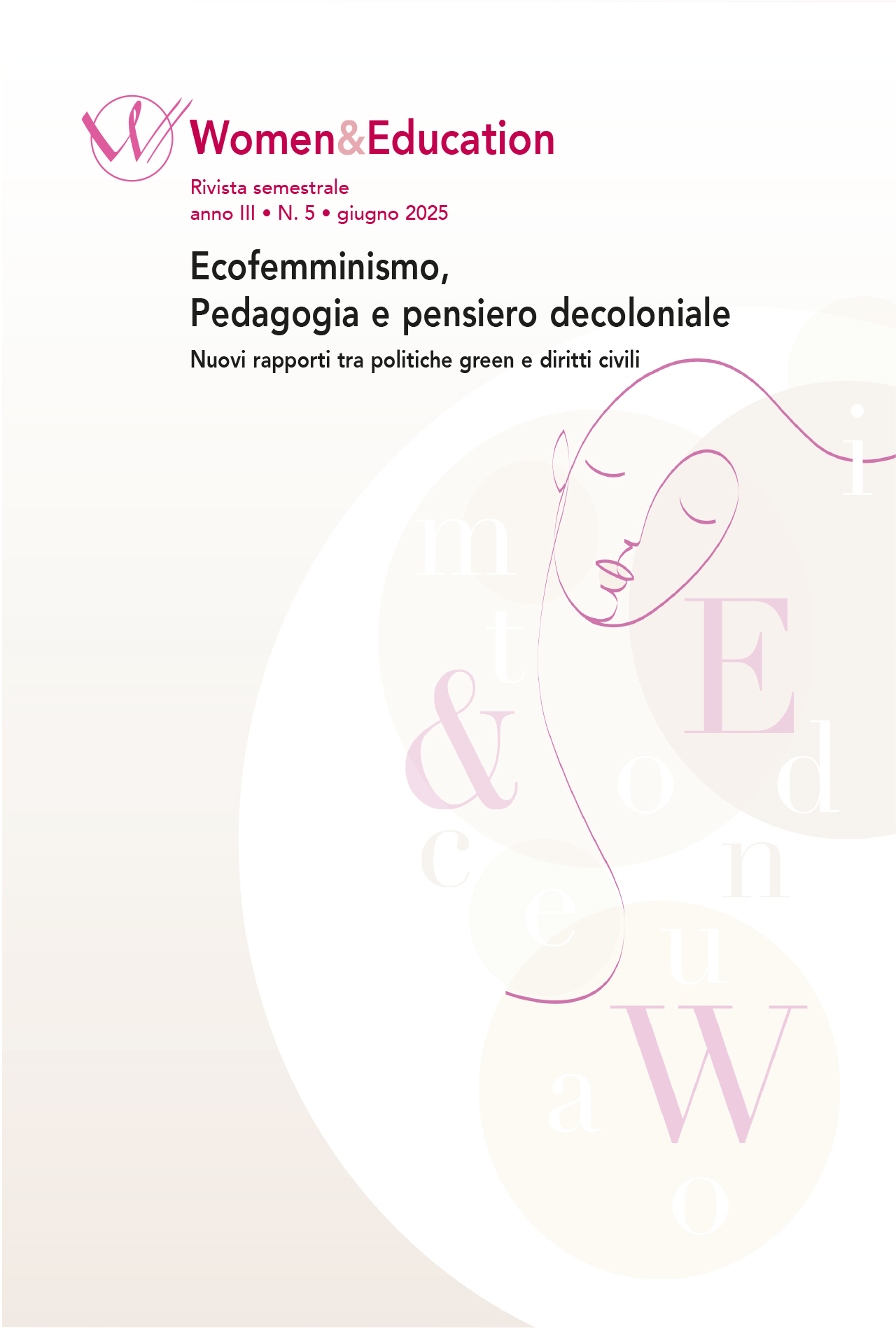The future is ecotransfeminist, posthuman and decolonial (or it’s not)
DOI:
https://doi.org/10.7346/-we-III-05-25_17Keywords:
Ecotransfeminism, Intersectionality, Decoloniality, Posthuman, Nature-based Experiential EducationAbstract
Since social and environmental issues are deeply interconnected, the need arises for an intersectional approach both to understanding the oppressions on social groups and on the more-than-human, and to developing pedagogical and political reflections on these matters. Education for sustainable development is insufficient and problematic as it neither reveals nor deconstructs the root of the issue; it is necessary and urgent to start from the margins, to learn from Indigenous Studies, and to decolonialize knowledges and powers. Such an ecotransfeminist approach can be pedagogically applied through a posthuman and compostist education which – also through experiential contact with nature – promotes relationships of care towards human and more-than-human others.
Downloads
Published
Issue
Section
License
Copyright (c) 2025 Women&Education

This work is licensed under a Creative Commons Attribution 4.0 International License.

